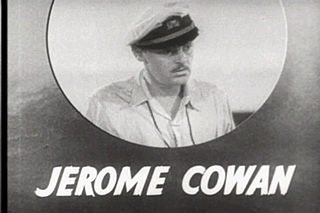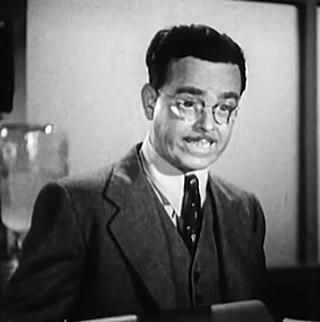This is a list of Fox Feature Syndicate publications.
This is a list of Fox Feature Syndicate publications.

Quality Comics was an American comic book publishing company which operated from 1937 to 1956 and was a creative, influential force in what historians and fans call the Golden Age of Comic Books.
Fawcett Comics, a division of Fawcett Publications, was one of several successful comic book publishers during the Golden Age of Comic Books in the 1940s. Its most popular character was Captain Marvel, the alter ego of radio reporter Billy Batson, who transformed into the hero whenever he said the magic word "Shazam!".
Black Fury is the name of several fictional comic book characters published in the Golden Age of Comics.

The Adventures of Superman is a long-running radio serial that originally aired from 1940 to 1951 featuring the DC Comics character Superman.

Jerome Palmer Cowan was an American stage, film, and television actor.

Michael Sekowsky was an American comics artist known as the penciler for DC Comics' Justice League of America during most of the 1960s, and as the regular writer and artist on Wonder Woman during the late 1960s and early 1970s.
James David Buttolph Jr. was an American film composer who scored over 300 movies in his career. Born in New York City, Buttolph showed musical talent at an early age, and eventually studied music formally. After earning a music degree, Buttolph moved to Europe in 1923 and studied in Austria and Germany supporting himself as a nightclub pianist. He returned to the U.S. in 1927 and, a few years later, began working for NBC radio network as an arranger and conductor. In 1933, Buttolph moved to Los Angeles and began working in films. Buttolph's best work, according to many, was his work as an arranger on the Alfred Newman score for The Mark of Zorro (1940).

Atlas Comics was the 1950s comic-book publishing label that evolved into Marvel Comics. Magazine and paperback novel publisher Martin Goodman, whose business strategy involved having a multitude of corporate entities, used Atlas as the umbrella name for his comic-book division during this time. Atlas evolved out of Goodman's 1940s comic-book division, Timely Comics, and was located on the 14th floor of the Empire State Building. This company is distinct from the 1970s comic-book company, also founded by Goodman, that is known as Atlas/Seaboard Comics.
Lew Landers was an American independent film and television director.
George Sherman was an American film director and producer of low-budget Western films. One obituary said his "credits rival in number those of anyone in the entertainment industry."
Hillman Periodicals, Inc., was an American magazine and comic book publishing company founded in 1938 by Alex L. Hillman, a former New York City book publisher. It is best known for its true confession and true crime magazines; for the long-running general-interest magazine Pageant; and for comic books including Air Fighters Comics and its successor Airboy Comics, which launched the popular characters Airboy and The Heap.
Ace Magazines was a comic book and pulp-magazine publishing company headed by Aaron A. Wyn and his wife Rose Wyn. The Wyns had been publishing pulp fiction under the Periodical House and A. A. Wyn's Magazine Publishers names since 1928, and published comics between 1940 and the end of 1956.

A jungle girl is an archetype or stock character, often used in popular fiction, of a female adventurer, superhero or even a damsel in distress living in a jungle or rainforest setting. A prehistoric depiction is a cave girl.

Rulah, Jungle Goddess is a fictional character, a jungle girl, in comic books published by Fox Feature Syndicate. She first appeared in Zoot Comics #7. Matt Baker designed her, before Jack Kamen and Graham Ingels helped develop her image.

William Tannen was an American actor originally from New York City.

Warren Reynolds "Ray" Walker was an American actor, born in Newark, New Jersey, who starred in Baby Take a Bow (1934), Hideaway Girl (1936), The Dark Hour (1936), The Unknown Guest (1943) and It's A Wonderful Life (1946).

Charles Williams was an American actor and writer. He appeared in over 260 film and television productions between 1922 and 1956. He also worked as a writer on 30 films between 1932 and 1954.
Henry C. Kiefer was an American artist from the Golden Age of Comic Books. Best remembered for his contributions to the long-running comic book series Classics Illustrated, Kiefer was a prolific artist who drew features for just about every publisher of his era.